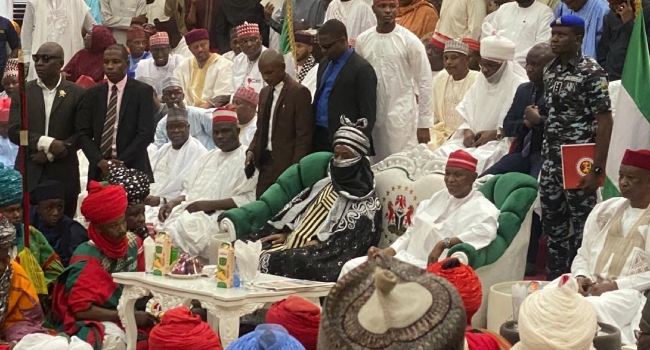
An equitable energy transition is critical to realisation of the United Nations Sustainable Development Goals (SDGs), OPEC Governor for Nigeria, Ambassador Gabriel Aduda, has stressed.
He advised that entities must be encouraged to responsibly develop available energy sources.
He made the submission at the Global Reputation Forum (GRF) for world leaders and entrepreneurs at the House of Lords in Westminster, United Kingdom.
In his keynote presentation of Social Impact of Energy Transition in Africa, guided by theme: “Global Collaboration for Sustainable Development: The Role of Nations in Social Impact,” Aduda stressed that the continent must develop from the known before it could transition to the unknown and harness its natural endowments for the good of the people.
“Big brother nations must recognise that achieving set goals in energy transition calls for deliberate and sustainable global partnerships where all nations are given a fair field of play and encouraged to develop responsibly energy sources available to them,” he said.
With the world six years away from the 2030 deadline for achieving the SDGs, only 12 per cent of the targets for which data exist, are on track, but almost one half are off track and more than one thirds are either failing to advance or worse still, regressing below the baseline set in 2015. Progress so far is said to be nowhere near where it is needed.
He noted that the fossil fuel industry can and must be part of the solution. Also, he maintained that climate change enthusiasts must acknowledge fossil fuels as the fuel that aided the industrialisation of advanced nations, and come up with modern technologies that would further reduce emissions and not reduce production.
Politician and biodiversity scientist, Dr Bibi Ameenah Firdaus Gurib-Fakim, who served as the sixth President of Mauritius, observed that the two interwoven sustainable development fields of environmental and social needs seem to have drifted apart from the way they measure progress and should work together.
She stated that it is only through cross-sector, cross-industry and cross-society partnerships that “we can scale the societal commitments to which we hold ourselves accountable and protect the global commons.”
Bibi urged the private sector to assume shared responsibility, in partnership with all other actors in society, to achieve these goals, especially as they have the expertise, knowledge and capacity to contribute to their achievement at country and community levels.













